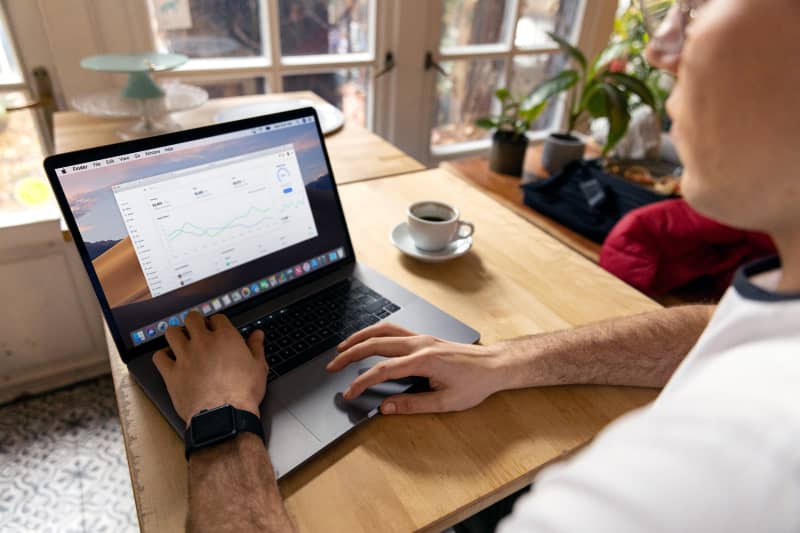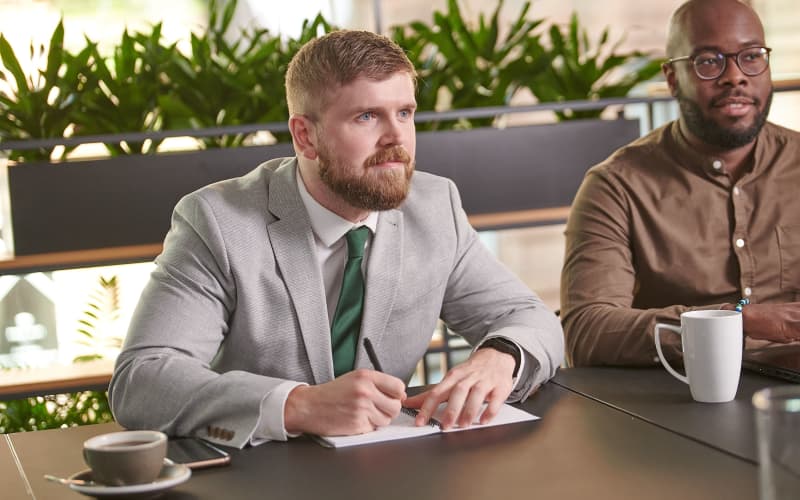Darren Hogan, Group Product Manager for connectivity and voice talks about his experience of working from home for 12 months.
I recently realised that March ’21 marks the 12-month anniversary of working from home full time since lockdown began. This has given me pause for thought and time to reflect, drawing comparisons with how I work now as opposed to how I worked in an office. On the surface working from home makes things much more predictable and straightforward, less of the fuss and bustle that comes with navigating the job and each other. But the more I really thought about things, I began to discover that the things I once labelled ‘gripes’ were actually something else entirely….
HDM-I give up!
I’m extremely fortunate in that I have a purpose-built room in my house that I call my office, and I don’t have to book it to use it. In the various workplace offices, I’ve worked at, I can remember countless times waiting patiently outside a meeting room for the previous meeting to finish due to overrunning. We would stare purposefully through the glass at someone in mid conversation, to infer the indiscretion. We’d be ignored. We would decide to get forceful after agreeing to “give it another minute or so” before building up the courage to open the door and politely ask of the occupants could vacate. The indignation would register on the faces of the 2 people that were occupying a 12 person meeting room. We’ve won. A small win but a win none the less.
Incidentally, I promised myself a long time that if I owned my own business, all my meeting rooms would be named after Bond villains.
“Where are we for this two o’clock session?”
“Scaramanga.”
“Is Geoff joining us?”
“No, he’s stuck in Nik Nak with Dylis from Finance.”
“Ah.”
I digress.
I can recall many times when I’ve attended meetings in meeting rooms and colleagues (and I) have spent countless minutes trying to figure out how to screen-share onto the tv screen in the room. Searching in vain for the remote control frantically hunting down HDMI/1/2/3 on the TV inputs with the soul crushing “no input found” glaring defiantly back at us. And let’s not forget the age old “HDMI vs Mac” contest – often ending in PowerPoint presentations being emailed around as a result of adaptors being “in my other bag”.
If that weren’t bad enough – consider the minefield of sharing a screen from a laptop onto a TV in a meeting room, opening up a video conference, trying to understand where the sound should be coming from, muting and unmuting everyone, turning up the laptop volume, turning up the volume on the TV, finally getting the sound to work only to get the horrific infinite echo of doom that even after turning everything off at the mains, giving up and going home – still seems to be coming from “somewhere”.
Hardly any of these complications exist in the age of homeworking. One-click entry to video conferencing has become the standard, but I wouldn’t say that’s the end of it. If I look back perhaps those moments of madness were the opportunity to think about something else other than work. To laugh out loud at our own miserable failings in grappling with technology. A shared experience of abject failure; a readymade anecdote for the next social event. A gift not a gripe…
One of the things I noticed happening pretty much after lockdown started was the rate in which my calendar filled up.
These meetings were more conversations than actual “meetings” and I guess were early efforts to book time with each other and keep in touch. After figuring out that the default 1 hour meeting (every meeting was an hour as standard in my experience) was overkill, with calendars rapidly filled with no time for luxuries like lunch or comfort breaks, the 30-minute meeting invite seemed to emerge as a new standard. This had the effect of turning my diary into what looked like a representation of a game of Tetris!
Out of this sudden flood of requests for time came a personal decision to try to control my day more effectively. I can’t remember purposefully booking a 1-hour lunch slot when I worked in an office, I just took myself away from the desk at around lunchtime and wondered out for a sandwich somewhere with a few mates. Indeed, getting those steps up, conversing with colleagues about the latest cinema releases, watercooler conversations about fantasy football were all baked into my day. Now I must book in an hour at midday otherwise I’ll literally lose my lunch.
In fact, the actual process of leaving my desk at home and doing anything else requires an element of planning.
What’s changed? The elements of work-related conversations that took place as I walked past someone’s desk, in the lift or car park now are transcribed and digitised and sent as a message that needs a response. It’s incredibly inefficient and reminds me of the time when every conversation in an office was an email thread, instead of a voice conversation.
Interestingly, for a telephone call, instant message, email conversation or any kind of communication that isn’t face to face to succeed, it requires both parties to agree to communicate. If I make a phone call, the other party must agree to pick up for us to talk. If I send a message in whichever digital format, the other party must respond for communication to take place. In short, it’s easier to choose to ignore someone who isn’t standing in front of you. If I’m having a face-to-face conversation, social etiquette mandates that I’m listened to and responded to, otherwise we are being “rude” to each other and that simply isn’t cricket.
In my view, if you’re trying to get an outcome through communicating with someone, there’s no faster more efficient way than making the effort to hound your colleagues by standing in front of them! I must make sure I do it more often in the future when we’re able to.
He who parks, wins!
Parking a car is a skill. Parking a car in a car park with not enough spaces is a penance. A game of nerves and precision. This is a typical scenario in many of the roles I’ve had over the years in different office car parks. Convincing myself I can break the laws of physics by squeezing my car into a space that’s clearly not wide enough, having a second go because I wasn’t properly lined up the first time, getting out and having another look, with paranoia setting in because I am convinced everyone in the office has stopped work to watch and record my hellish experience on smartphones through the windows.
Starting the day earlier and earlier to avoid traffic and guarantee a parking space is a mandatory requirement. Getting to the office on any day after 08:00 would be a risk. 08:15, forget it. A day can be made or broken by our parking experience before we even set foot in the foyer. And of course, not everyone plays by the rules. The protagonist that feels it’s appropriate to park over the lines, taking up two spaces in a completely full car park deserves a special place in hell. But there is another type of faux pas. Those working for another company and parking in OUR spaces. This gives rise to coffee break conversations whilst surveying the car park from the first-floor window.
“I’m sure they don’t work here”
“I don’t recognise that plate”
“That’s a new one I’ve not seen that one before”
According to the RAC, At the end of September 2020, there were 38.8 million licensed vehicles in Great Britain, and I’m pretty sure every single one of them has managed to get a space in the office car park before me.
This has been struck from the list of morning foibles under lockdown. My morning commute is the time it takes to walk from the kitchen to my home office. About 6 seconds. My previous commutes have varied in length from around 45 minutes to 4 hours.
I have mixed feelings about the commute not being a part of my routine anymore.
On the plus side, I can now walk my 6-year-old daughter to school and back. I place a monumental amount of value on this privilege. It won’t last forever, and I can’t get this time back with her. In addition, I’m saving money on fuel and not spending time being unproductive for 3 hours a day by travelling to an office to perform the same function that I can perform to the same level of quality from my home office.
But on the flip side, part of me misses the commute (I’ll read this back in 6 months’ time when we’re back to normal and conclude I’ve gone insane in lockdown). I used to spend the commute thinking about work, life, stresses, pressures, anything really – trying to make sense of things. I would also spend the time listening to music or audiobooks. I have fond memories of traversing the M62 or M1 listening to audiobooks like “The Phoenix Project” or Stephen Kings “IT” (44 hours and 53 minutes in case you were wondering), engrossed in the experience. I cancelled my Audible subscription recently because I simply wasn’t getting the value anymore.
The thing the commute also gave me was time to decompress at the end of the day before I re-entered the home. Time to consume and reflect on the day’s events. Time to transition back to Dad and Husband. This was all part of my day; I didn’t think about it. Now I take myself out for a walk if I need to think things through or provide a line at the end of the day between work and home life – which doesn’t quite feel the same and, in a weird way, feels selfish.
The Future of work is…
For me personally…a choice. I wouldn’t want to commit to 5 days per week in the office, nor would I campaign for a shutdown of the ‘clubhouse’ and embrace remote working entirely. More a balance of work and home. Accomplishment and productivity. Ideas and innovation. Fun and silliness. The tools I use to do my job aren’t biased either way. They won’t dictate my approach to work but support me in how, where, and when I choose to work.
We have a once in a lifetime opportunity to re-create our own version of the future of work.
I must try to think on the things I’ve realised mean more to me than just being productive. And try to be more tolerant and appreciative of the moment and the people around me who I share that moment with.
Does M247 sound like a place you want to work and progress your career in tech? For more information take at look at our careers page and our latest vacancies to search and apply.




